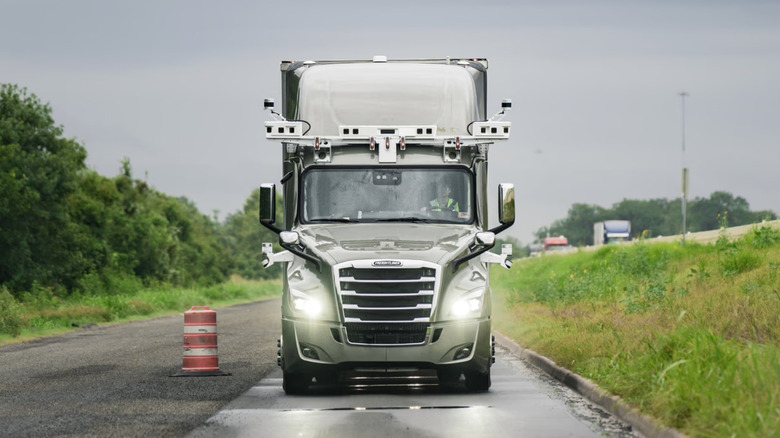Texas' Driverless AI Trucking Industry Is About To Have Another Player After A Successful Trial
Texas is a major hub for driverless trucking startups, with Aurora launching its self-driving trucking service in May 2025 and Kodiak planning to launch its own driverless trucks in the state in 2026. One of the earliest startups in the space was TuSimple, which shuttered its U.S. business in 2023 and moved its operations to China. TuSimple co-founder Dr. Xiaodi Hou left the company shortly before the U.S. operations were closed, and subsequently founded a new startup. It shared the same goal as its predecessor — to develop level 4 autonomous trucks that could cover long distances on American roads without the need for human intervention. The new company, Bot Auto, recently announced that it had moved a step closer to that goal, completing a humanless validation run in Houston.
Traditionally, self-driving trucks have either been run with a human in the driver's seat in case of emergency, or featured some way for a remote operator to take control. However, Bot Auto's truck did not have a backup operator at all. It's a notable achievement for a company that has only been around for a couple of years, but the startup still has a long way to go to commercialize the technology. Hou said in a news release, "this validation run is a meaningful step, but it's a waypoint, not the destination." According to Hou, "success is simple: autonomy must beat human cost-per-mile, consistently and safely."
Bot Auto joins the driverless trucking race
The startup plans to conduct new validation runs soon, noting that its next goal is to complete a humanless run between Houston and San Antonio, a distance of almost 200 miles. In doing so, it becomes one of several players looking to inch closer to making level 4 autonomous trucks commercially available. The trucking industry is struggling with recruitment issues, particularly with getting younger drivers into long-haul trucking, and self-driving truck startups say their technology could help fill in the gaps in the workforce.
There is also a potential cost advantage for trucking companies, since driverless trucks don't need to rest, and they don't require the same creature comforts as human long-haul truckers do. As such, there is potentially a big market to be tapped for the startup that launches the first widely available self-driving truck service, although some players in the space have adopted a more cautious approach to development.
In 2023, Waymo announced that it was scaling back its self-driving semi-truck program to focus its efforts on its self-driving taxi. In its announcement, the company noted that improving its taxi's capabilities first would be beneficial both for improving its future trucks' highway driving abilities and for navigating any potential regulatory issues with self-driving vehicles.

